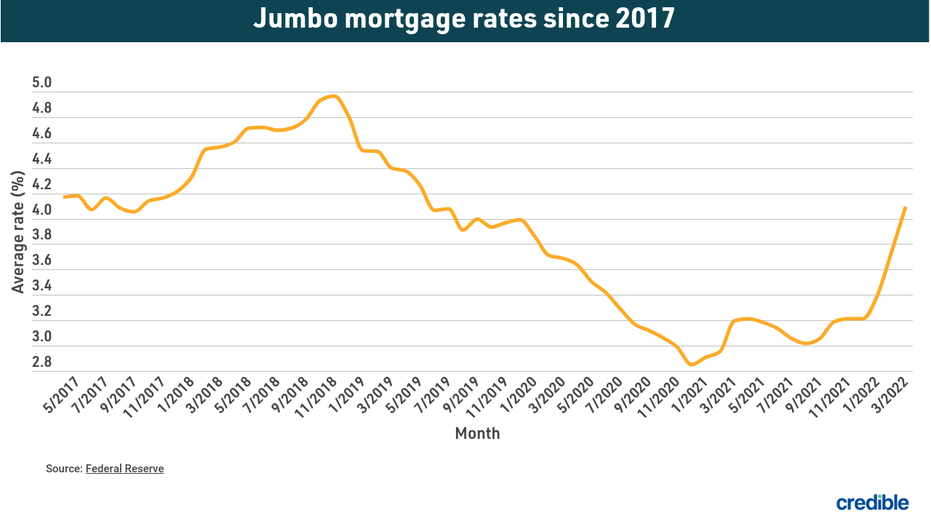Jumbo Loan: Funding Solutions for Homes Above Conforming Purviews
Jumbo Loan: Funding Solutions for Homes Above Conforming Purviews
Blog Article
Discovering the Advantages and Features of Jumbo Loans for Your Following Home Purchase Decision
As the realty market develops, comprehending the details of big lendings ends up being significantly pertinent for prospective buyers thinking about high-value properties. These fundings not only help with significant financing but additionally supply several advantages, such as affordable rate of interest and the potential elimination of personal home loan insurance policy. The course to safeguarding a jumbo car loan is laden with details eligibility criteria that might test some purchasers. To fully value exactly how big loans can influence your home purchase strategy, it is necessary to explore their vital attributes and advantages in higher information.
What Is a Jumbo Funding?

Jumbo finances are often utilized by buyers looking for to purchase high-value residential or commercial properties or homes in expensive markets. jumbo loan. Given the larger quantities obtained, loan providers typically impose stricter debt demands, consisting of higher credit rating, reduced debt-to-income ratios, and larger down payments. The rate of interest on big finances might be slightly greater than those on adjusting loans, reflecting the increased threat for loan providers
Furthermore, the authorization process for a jumbo funding can be more complicated and taxing, as lenders need comprehensive documents to examine the customer's monetary stability. Comprehending these nuances is essential for potential home owners taking into consideration a jumbo car loan for their residential property funding needs.
Key Benefits of Jumbo Financings
One considerable benefit of big lendings is their capability to fund higher-priced residential properties that surpass adapting financing limitations. This feature makes them an appealing alternative for purchasers looking to buy luxury homes or buildings in high-cost areas where prices normally exceed conventional financing thresholds.
Additionally, big loans typically feature versatile terms and affordable interest rates, enabling customers to customize their financing to match their special economic circumstances. jumbo loan. This versatility can consist of options for adjustable-rate home mortgages (ARMs) or fixed-rate finances, offering buyers with the capability to handle their regular monthly settlements according to their choices
Another advantage is that jumbo finances do not require personal mortgage insurance (PMI), which can dramatically minimize the total cost of the loan. With PMI usually being a significant expenditure for traditional car loans with reduced deposits, preventing it can result in substantial cost savings with time.
Additionally, consumers of big financings generally have accessibility to greater loan quantities, enabling them to purchase residential or commercial properties that satisfy their lifestyle needs. This gain access to equips buyers to act emphatically in competitive real estate markets, safeguarding their preferred homes better. In general, jumbo loans use important advantages for those seeking to finance premium properties.
Eligibility Needs for Jumbo Lendings
Jumbo finances feature specific eligibility requirements that possible customers have to satisfy to secure financing for high-value residential or commercial properties. Unlike standard loans, which have actually set limitations based upon the adjusting car loan restrictions established by government-sponsored entities, big loans surpass these thresholds, necessitating more stringent standards.

In addition, jumbo loans often demand a considerable deposit, often ranging from 10% to 20% of the acquisition cost, depending upon the lender's plans and the customer's economic scenario. Cash money gets are additionally thought about, with numerous lenders expecting my link debtors to have several months' well worth of mortgage payments conveniently available. Last but not least, comprehensive paperwork of income and possessions will certainly be needed to support the funding application. Fulfilling these eligibility requirements can position consumers favorably in protecting a big funding for their wanted residential or commercial property.
Comparing Jumbo Lendings to Traditional Finances
Understanding the distinctions between big financings and standard loans is necessary for buyers browsing the high-end property market. Big finances exceed the adjusting car loan restrictions set by the Federal Housing Finance Agency (FHFA), which suggests they are not eligible for acquisition by Fannie Mae or Freddie Mac. This causes different underwriting criteria and requirements for customers.
In contrast, conventional lendings normally abide by these restrictions, permitting an extra structured authorization process. Big financings typically call for stricter credit report, bigger down settlements, and greater economic gets. For instance, while a standard funding could need a down payment of just 3% to 5%, jumbo fundings normally demand a minimum of 10% to 20%.
Rates of interest on big finances may vary from those of standard loans, typically being slightly higher due to the enhanced threat loan providers think - jumbo loan. The potential for significant financing can be helpful for buyers looking for high-end homes. Ultimately, understanding these distinctions allows homebuyers to make enlightened decisions, aligning their financing options with their unique investing in requirements and economic conditions
Tips for Securing a Jumbo Funding
Protecting a big finance requires cautious preparation and prep work, as lenders typically enforce stricter demands compared to traditional finances. To improve your chances of authorization, start by inspecting your credit report and addressing any concerns. A rating of 700 or higher is generally preferred, as it shows creditworthiness.
Following, collect your economic documentation, consisting of income tax return, W-2s, and bank statements. Lenders typically call for comprehensive evidence of revenue and assets to examine your capability to repay the loan. Maintaining a low debt-to-income (DTI) ratio is additionally important; aim for a DTI listed below 43% to enhance your application's competitiveness.
Additionally, consider making a bigger down settlement. Many lenders look for at the very least 20% down for big financings, which not just lowers your finance amount but reference additionally signals monetary stability. Engaging with an experienced mortgage broker can give vital insights into the procedure and assist you navigate different lender options.

Conclusion
In summary, jumbo lendings present significant advantages for property buyers looking for residential or commercial properties that exceed standard funding restrictions. With affordable rates of interest, flexible terms, and the absence of private home loan insurance policy, these financings can result in significant price financial savings. Prospective customers must navigate more stringent eligibility requirements to acquire beneficial terms. Complete understanding of both the needs and benefits related to jumbo lendings is vital for making notified home purchase choices in an affordable actual estate market.
The rate of interest rates on big finances may be a little greater than those on adapting find this car loans, mirroring the increased risk for lending institutions.
While a standard car loan might call for a down repayment of as little as 3% to 5%, jumbo financings normally require a minimum of 10% to 20%.
Passion prices on big lendings may differ from those of traditional financings, often being somewhat greater due to the raised threat loan providers think.Safeguarding a jumbo financing requires careful planning and prep work, as loan providers frequently enforce more stringent requirements compared to standard lendings. Several loan providers seek at the very least 20% down for jumbo lendings, which not only decreases your financing amount yet also signals financial stability.
Report this page